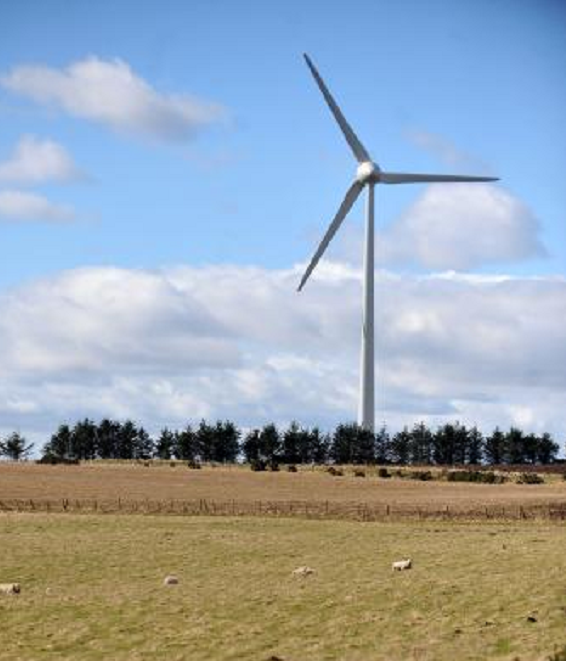
Investors behind two wind turbines in Aberdeenshire have lost out after the companies behind them were put into administration.
The administrators, who are looking to sell the two standalone turbines to new owners, cited the impact of cuts in subsidies for wind farm owners, the expense of leasing land as well as technical “glitches” for the financial failure of the ventures.
The two turbines are based on farms, one at Cuminestown, near Turriff, and the other at Cairnie, near Huntly.
Both are operational, although not currently at full capacity due to various “niggling issues” the administrators are working to resolve or have already fixed, they said.
Formerly backed by the same group of Edinburgh-based investors, the Ewebrae turbine at Cumniestown is ready for sale. However the sale of the Sinsharnie turbine at Cairnie is more complicated as it is involved in a joint venture with a local farmer who holds certain pre-emption rights, the administrators said.
Andrew Watling and Carl Jackson, partners at business rescue and recovery firm Quantuma, are now handling the affairs of RM Ewebrae and RM Sinsharnie, which are named after the farms on which they are based.
Mr Watling said: “They are generating revenue but it has not been sufficient historically to service the loans which were taken out to finance their construction and commissioning.
“Ewebrae has previously been hampered by metering and signal issues which the joint administrators have taken steps to rectify, by installing new equipment.
“Sinsharnie is being undermined by software glitches which have led it to cut out in strong winds. The joint administrators are working with their retained maintenance contractor to ascertain what can be done to alleviate and/or fully resolve this issue.”
Mr Watling said Quantuma had already received various expressions of interest from prospective purchasers of the Ewebrae turbine.
He added: “Turbines are very expensive to build, set up, operate and maintain, and therefore significant capital investment is required, up front.
“There may be legislative issues and for onshore wind farms there can be land and lease related issues.
The cutting of subsidies in the UK has undoubtedly impacted the industry, he said, with many potential operators underestimating the business lifecycle and therefore finding themselves unable to finance their on-going costs.
“Whether a project is under construction, or whether it is at a more mature operating stage and producing revenue, there are still funding issues which it is all too easy to underestimate,” he said.
Recommended for you

